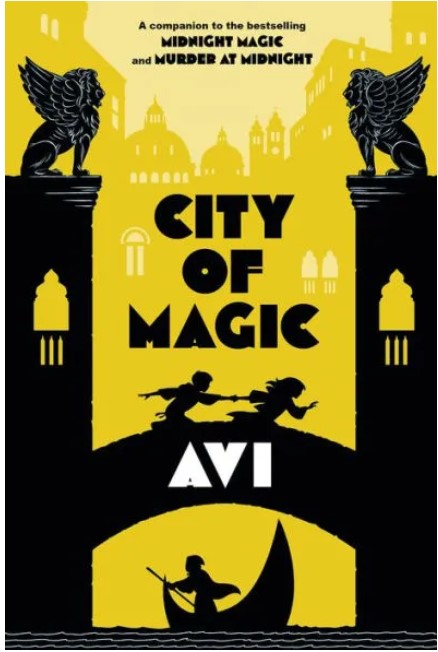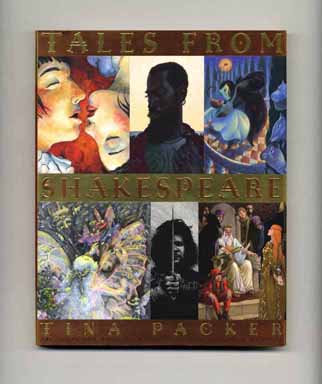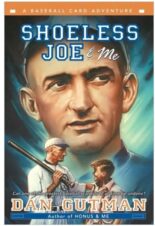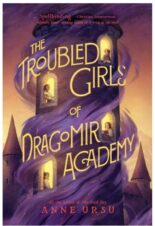Tales from Shakespeare
by Tina Packer
AR Test, Diverse Characters, Teaches About Culture
12+
Score
5.4
192
Tales from Shakespeare takes a trip through 10 of Shakespeare’s plays covering the gamut of plots. From lighter stories such as A Midsummer Night’s Dream to stormier plots like Macbeth, Packer does a thorough job portraying the range that Shakespeare had with his pen.
Shakespeare is often cautioned when given to readers as it can be hard to get through, but this book helps to break down that barrier. Packer tells Shakespeare’s stories in her own words while seamlessly weaving excerpts into the process. This method of storytelling removes the intimidation factor that Shakespeare can sometimes have with new readers without forfeiting the ingenious wordsmithing that the Bard is known for.
Perhaps as enticing as the beautiful stories are the incredible artwork that sits between the pages. Packer recruits a different illustrator for each of the plays, and each has vastly different styles. The variety of artwork is all too fitting for stories with vastly different plots. The illustrations serve as milestones when flipping through the book urging one to continue reading to reach the next scene. With highly detailed illustrations in high resolution, one finds themselves looking at the portrayed landscapes and characters and feeling a sense of escape. Illustrations appear every 10-15 pages, often at the beginning of a new story. Having such detailed imagery only seems fitting for literature that was intended to have a visual aspect as well. Originally, one would be listening to these stories while watching it unfold in the spotlight. This book simulates that feeling with the interplay of visual art and literature. Tales from Shakespeare feeds one’s fictitious hunger and lets one’s imagination roam.
It is a known fact that some of the topics covered in Shakespeare’s plays could be harsh for a younger audience. The original stories have sexual innuendos, violence, and strong language, and Tales of Shakespeare does not remove those topics. Packer does not alter the stories, but she does not dwell on graphic details that are portrayed in a matter-of-fact way. If someone dies, she mentions it, but she does not use the moment to leverage a reaction from the reader. The focus of this book is to welcome as many readers into the “Shakespearean fold” as possible by introducing his command of the human experience. The theme that ties these stories together is the timelessness of these plays, and how they have the power to cause one’s eyes to well up hundreds of years later.
Tales of Shakespeare is the perfect introduction to Elizabethan England, 17th-century English dialect, and Shakespeare’s stories. Shakespeare’s stories are timeless, and they have spoken to people throughout the ages. This book would serve as an excellent resource as an introduction to how plays are read and how they are formatted. The book includes the plays A Midsummer Night’s Dream, Hamlet, Much Ado About Nothing, Macbeth, The Tempest, Othello, As You Like It, Romeo and Juliet, Twelfth Night, and King Lear. Tales of Shakespeare covers some of Shakespeare’s greatest works and the prowess of the Bard is made accessible through this book.
Sexual Content
- Don Pedro and Claudio see, “A woman leaning out of Hero’s window kissing another man.” They believe Hero is cheating.
- Romeo and Juliet are “laying in each other’s arms” and he is “sealing her lips with a kiss.”
- Othello thought his wife looked so beautiful sleeping. “He could not resist giving her one last kiss . . . and then another . . . and then another.”
Violence
- Hermia’s father threatens her with death if she doesn’t marry the Duke.
- After Hamlet has slain Polonius, “the bloody corpse of old Polonius slumped forward.”
- After being weighed down by her dress, Ophelia drowns in the river.
- Hamlet and Laertes duel and at the end “both men now bleed.”
- Hero fakes his death in order to test the love of Claudio.
- Beatrice orders Claudio’s death and that Benedick should duel him. They do not duel and Claudio is unharmed.
- Macbeth goes into Duncan’s chambers when he is sleeping and “plunged both daggers into the king’s chest” and fled “still clutching the gory blades.”
- After Macbeth kills Duncan, Lady Macbeth is unsuccessfully trying to wash the stain of a bloody spot. “Here’s the smell of blood still.”
- Macduff and Macbeth duel and Macbeth is slain. Macbeth realizes he was the king to fall and dies in regret after “blade met flesh.”
- In an ambush, “Roderigo leaped from the shadows and jabbed a knife in the back of Cassio’s chest.”
- Othello “pressed a cushion over his wife’s face, smothering her.”
- Oliver offers a blood-soaked rag to Rosalind. Rosalind faints at the sight of it.
- Mercutio “stumbles backward” and is slain by Tybalt. Tybalt is then slain by Romeo in revenge. “He wildly fought and the sword found its mark.”
- Romeo drinks poison given to him by the friar. He believes Juliet to be dead and kills himself. Juliet wakes up to see her lover dead and says, “Oh happy dagger! This is thy sheath. There rust and let me die.” She proceeds to stab herself in the heart and falls next to her husband, Romeo.
- Cornwall plucks out Gloucester’s eye saying “out, vile jelly” and then proceeds to pluck the other one out. Regan then “leaned over Gloucester’s bloody, unseeing face.”
- Gloucester tries to take his own life by jumping off a cliff, but is unsuccessful. He swears to never do it again. He later dies from grief and from having his eyes taken out.
- Goneril’s steward is “struck down” by Edgar after turning on him.
- Regan dies from being poisoned by Goneril, and Goneril, who is overcome with grief, stabs herself.
- Edmund orders both King Lear and Cordelia to die. Although it is not described, he is successful in killing Cordelia. When Lear sees his daughter dead, he is overcome with grief and dies as well.
Drugs and Alcohol
- Claudius promised to serve Hamlet a “goblet of poisoned wine for good measure.”
- Queen Gertrude, the king, and Laertes are poisoned by wine.
- Stephano, the king’s butler, “washed ashore with a case of wine and had spent the last hour swigging from a bottle.” He meets Caliban and he gets drunk as well.
- Cassio gets drunk and gets into a fight with Roderigo.
- Toby makes a drunken effort to draw his sword, but Maria crafts a plan to distract him.
Language
- Polonius says to Ophelia, “You speak like an immature girl.”
- “Get thee to a nunnery!” Hamlet says to Ophelia
- Lady Macbeth yells “out damned spot” when trying to clean the blood from her hands.
- Macduff shouts, “Turn hellhound, turn!”
- Caliban says to Stephano, “What a thrice-double ass was I to take this drunkard for a god.”
- Iago says to Roderigo “after all, it’s only natural that she tire of that ugly moor.”
- In a rage against Desdemona, Othello says to kill her. “No, damn her, lewd minx.”
- “Oh dishonorable, vile submission!… Wretched boy.” Tybalt exclaimed to Mercutio.
- King Lear calls Goneril and Regan “unnatural hags.”
Supernatural
- Puck gives Bottom a Donkey head.
- Demetrius has a love potion cast upon him that makes him love Hermia.
- Hamlet sees his father’s ghost and says that his father was murdered. His ghostly father makes him swear to avenge his murder and kill his uncle.
- The three witches in Macbeth predict the future and the eventual demise of Macbeth. They create a potion and finish each other’s sentences.
- Macbeth sees the ghost of Duncan at the dinner table, and others believe Macbeth is mad.
- Caliban is an enslaved, scaled creature and the son of the witch Sycorax.
- Prospero has strong magical powers, a book of charms, and creates the Tempest.
- “’My daughter, O my daughter,’ Brabantio wailed. ‘Stolen from me and corrupted by spells.’” Brabantio goes on to accuse Othello of witchcraft.
Spiritual Content
- Beatrice says, “God give you joy.”
- As Hamlet dies, Horatio says, “Flights of angels sing to thy rest.”
- “Oh let me not be mad, sweet heaven,” said King Lear who feared for his sanity.
- After seeing Cordelia dead, the distraught King Lear says, “The Heaven’s vault should crack.”
by Paul Gordon
“That which we call a rose by any other name would smell as sweet” –Romeo and Juliet
Latest Reviews

Hoop Genius: How a Desperate Teacher and a Rowdy Gym Class Invented Basketball

Our Violent Ends

Healer of the Water Monster
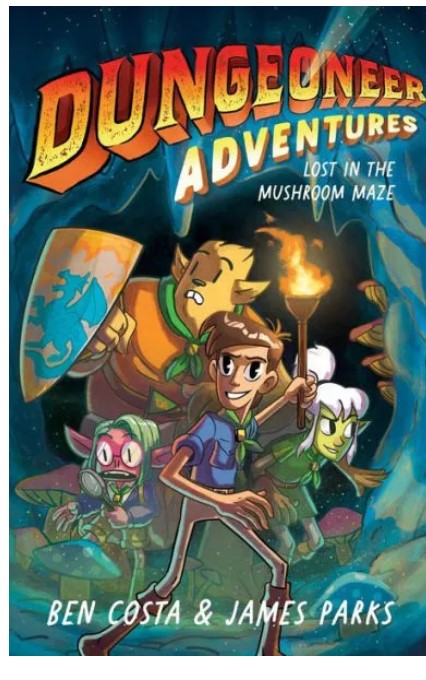
Lost in the Mushroom Maze
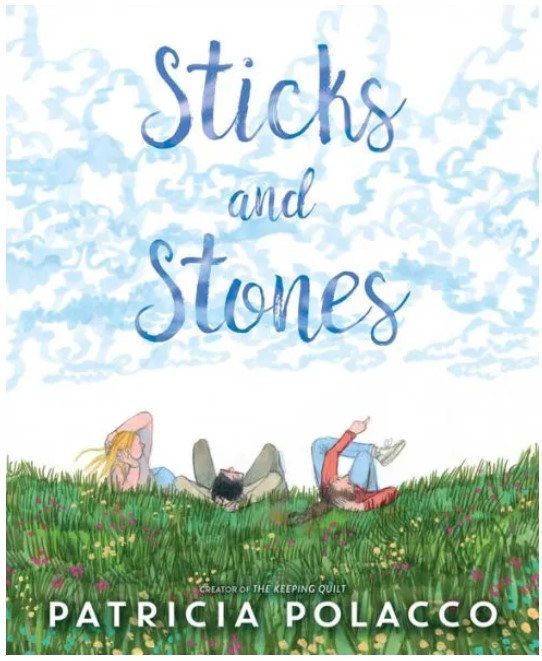
Sticks and Stones
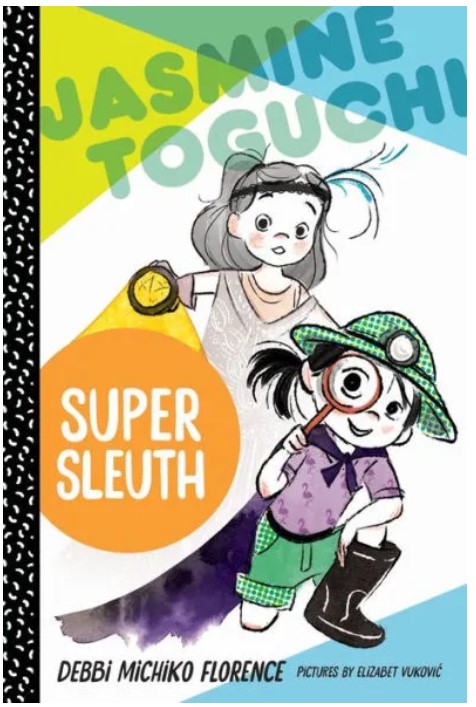
Jasmine Toguchi, Super Sleuth
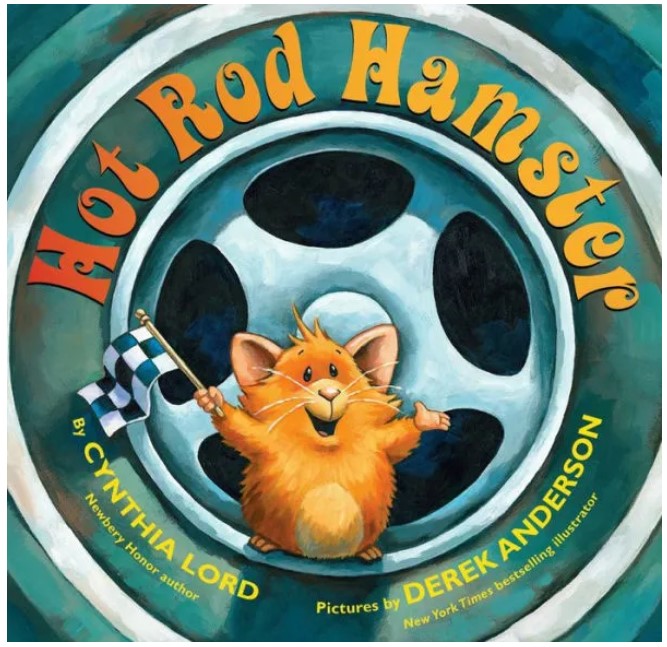
Hot Rod Hamster

You’ll Be the Death of Me
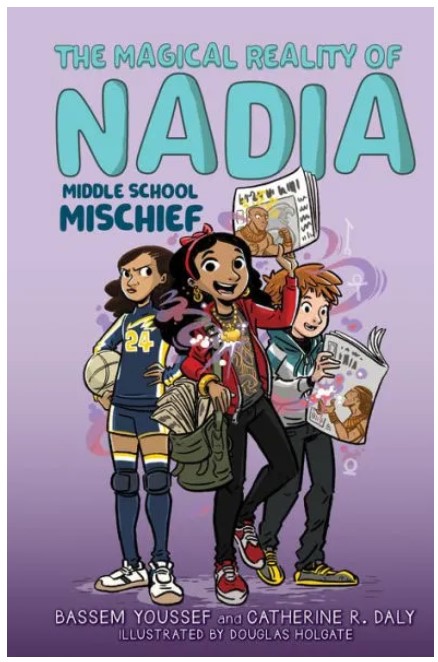
Middle School Mischief
